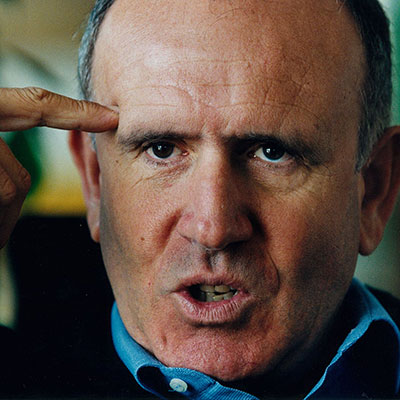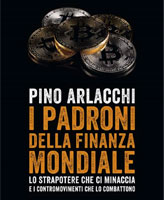BBC Monitoring European has taken over my article published in the newspaper "L'Unità".
For the readers of my site, here is the text.
Italian commentary criticizes West's attempts to "export" democracy
3 January 2014
13:26
BBC Monitoring European
Text of report by Italian newspaper L'Unita on 2 January
Goodies against baddies; democratic pro-Europeans against authoritarian pro-Russians; coloured revolutions being the forerunners of Arab springs, Ukrainian, Georgian, and Kyrgyz demonstrators craving freedom, just like Iraqi, Syrian, and Lebanese demonstrators. These are the wrong and misleading interpretations that have been dominating the Western media, as well as European and US policies since the year 2000.
Let us start with Kyrgyzstan. In 2005, the pro-Western and anti-Russian goodies led by Kurmambek Bakyev seized power; this was the tulip revolution which followed a well-tested blueprint: a series of protest demonstrations by opponents of a regime overthrow a dictator linked to the communist past, amid European and US applause. Sadly, though, Bakyev immediately introduced an equally repressive regime, with elections that were just as fake, and with human rights violations. He also prevented Kyrgyzstan from siding with the West by allowing both Russians and Americans to keep their military bases on its soil in exchange for generous aid. Aid for whom? For himself and his clan. How did it end? A pro-Russian president has been in power since 2010.
But the narrative on the tulip revolution of 2005 was preceded by the one on the carnation revolution in Georgia in 2003 and the orange revolution in Ukraine in 2004. The blueprint was always the same: disputed elections followed by street demonstrations by students, intellectuals, anti-Russian NGOs force the baddies of the old guard to give way, via elections, to a young and westernized president. In Georgia, former communist boss Eduard Shevardnadze was replaced by the 37-year-old modernizer Saakashvili, a lawyer who had lived and worked in New York. In Ukraine, a corrupt apparatchik linked to Moscow was defeated by Viktor Yushenko, a charismatic pro-Western politician allied with Yulia Tymoshenko, a very wealthy sexy reformer who is a combination of Margaret Thatcher and Claudia Schiffer.
The success of coloured revolutions in satellite countries of the former Soviet Union created such a strong narrative that it was exported to Iraq after the fall of Saddam Husayn: the election of 2005 became the crimson revolution, named after the colour of the ink on the index fingers of voters, which prevented fraud, and a gentleman called Ahmad Chalabi was hailed as Iraq's Charles De Gaulle. The same year there was the cedar revolution in Lebanon, which followed the protests over the assassination of the Sunni leader Rafiq al-Hariri.
This promotion of democracy on the part of the Bush administration and its docile EU ally was based on the assumption that the forces in the fray in the Middle east and on the borders with Russia, the goodies, were all inspired by the ideals of the free market and democracy, and were moving united towards the West and against Russia, against Iran, and against religious extremism, corruption, and political violence. Pity, though, that matters took a very different turn; the forces that were unleashed in these contexts were the forces of nationalism, tribalism, ethnic division, and political fanaticism masked as religious radicalism. All this was led by cynical and corrupt elites that were not very different from the ones that had preceded them.
Saakashvili in Georgia introduced an adventurous authoritarian regime, which provoked Russia, and forced the United States to dump him quickly. His departure in 2013 took place to the benefit of a president who plans to fix ties with Russia. Yushenko and Tymoshenko governed by riding the waves of destructive Ukrainian nationalism, stealing as much as they could, and doing nothing to make the country move closer to Europe. It ended in 2010 with the return of the baddie, Yanukovich, who in the interim had become slightly pro-European, while Tymoshenko had become pro-Russian after signing a huge energy deal that damaged Ukraine to the tune of $20 bn and led her to jail.
In Iraq, Chalabi soon revealed himself for what he was, a two-faced con man, who was soon replaced by governments increasingly attracted by Iran, as the country lost its most valuable area - the one inhabited by the Kurds - and was shaken by unprecedented sectarian violence. Meanwhile the cedar revolution turned into a fierce clash, which is keeping Lebanon on the edge, between Sunnis and Christian Maronites on one side, and pro-Iran Shi'i and Hizballah on the other. This is a sequence of failures, to which one can add Libya, Afghanistan, Armenia, and Syria.
The three basic mistakes of Euro-American policies are clear: there was the pretense of exporting something - free-market democracy - that cannot be exported because, while on one hand it is already potentially present everywhere, since it is universal, on the other hand it needs its own timeframe and its own tools to develop and become solid; secondly, people have entrusted themselves to local forces that were only apparently interested in the values and the institutions of the West, but were actually only craving power and money, and were ready to change sides and use ultra-nationalism and chauvinism to keep afloat. However, the fatal mistake has been that of continuing the cold war and the clash of civilizations against two major regional powers, Russia and Iran, rather than making a U-turn towards cooperation and peace. Nevertheless, there is time to change, in particular if the European Union manages to learn its lesson.
Source: L'Unita, Rome, in Italian 2 Jan 14 pp 1, 15





 Non sono una persona complicata. La mia vita pubblica ruota intorno a due cose: il tentativo di capire ciò che mi circonda, da sociologo, e il tentativo di costruire un mondo più decente, da intellettuale e militante politico.
Non sono una persona complicata. La mia vita pubblica ruota intorno a due cose: il tentativo di capire ciò che mi circonda, da sociologo, e il tentativo di costruire un mondo più decente, da intellettuale e militante politico.




